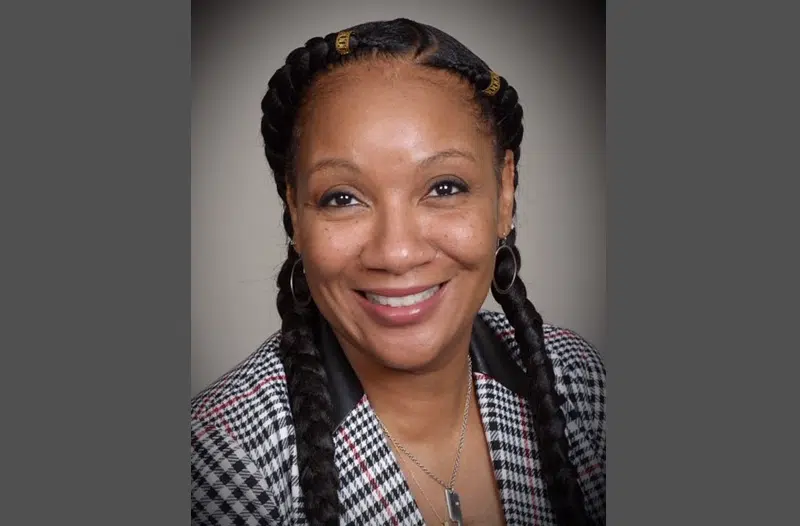PUBLISHED: 24th August 2020

By Wenora Johnson
Positivity kept me going after my colorectal cancer diagnosis
One of my favorite quotes by author, educator and Pastor Charles Swindoll is, “Life is 10 percent what happens to you and 90 percent how you react to it.” This quote kept me going after my diagnosis of stage IIIb colorectal cancer in 2011. I smile when I look back on that year, not because I got this ugly thing called cancer, but because I probably drove my kids crazy with the many inspirational quotes in giant letters that I posted throughout the house. Pastor Swindoll’s quote was truly my motivation, because I knew that how I reacted to my diagnosis would play out through the rest of my life, and I was determined to have a life! But life had some interesting events in store for me, and my attitude was “alright then, bring it on.”
The standard treatment for colorectal cancer is usually surgery to remove the diseased tissue followed by chemotherapy (5-FU and oxaliplatin for me) for six months. After treatment, my concerns were things like which wig was I going to wear to work, and whether anyone would notice that I had no eyebrows and eyelashes. I know that sounds vain, but cancer will make you feel that way; it robs you of who you are inside and out. All I really wanted was to feel like at least 50 percent of myself and not to feel so self-conscious, wondering if everyone was staring and feeling sorry for me. I chose to react to my entire cancer ordeal in a positive manner. It may sound a bit cliché when you hear people say that you should try and have a positive attitude, but it does make a huge difference, and it will help you stay physically and mentally strong. In my case, it helped me once again when I was almost 5 years NED (no evidence of disease) and then cancer reared its ugly head again.
Lynch syndrome was the culprit
At this time, in 2016, my oncologist suspected there might be a genetic reason for my colon cancer diagnoses and recommended genetic testing. It was not surprising that I tested positive for Lynch syndrome, a type of inherited cancer syndrome associated with a genetic predisposition to different types of cancer. I’d already decided what I would do with the information—nothing! That is, until I read the full genetic report that said I had a 60 to 80 percent chance of developing endometrial cancer. That was when I opted to have a total hysterectomy, but the pathology showed that I already had stage IA endometrial cancer. Suddenly, Lynch syndrome became more real for me. I wanted to research and learn as much as I possibly could about this syndrome, because my life depended upon me staying one step ahead of the next cancer diagnosis and understanding what treatment options were available.
A caregiver’s support
Love truly saves the day! A couple of years ago, I met and married my soul mate. He supported me through my second and third bouts with different cancers. When my hysterectomy threw me into immediate menopause, we both appreciated the term “for better or worse.” It’s very important to have someone by your side as you journey through your cancer battle, whether it’s your spouse, caregiver, a family member or a close friend. Their ability to lift you up when you are at your lowest makes you want to fight to live another day.
Always take Lynch syndrome seriously
Individuals who have Lynch syndrome must take this condition seriously. Had I known that my grandfather had passed away from colorectal cancer at the age of 38, I may have taken early measures to be tested for colorectal cancer, instead of waking up from surgery and being told that, “We believe you’ve had it for 15 years.” The importance of sharing your family history cannot be stressed enough. Since my initial diagnosis, my brother has also been diagnosed with stage IV colorectal cancer. I encourage my daughters to have a fecal immunochemical test (a simple screening for colon cancer) and routine colonoscopies because of the inherent nature of this disease.
FORCE supports those with Lynch syndrome
FORCE plays an important role for those who have a predisposition to cancer or who develop an inherited cancer. I stalked the FORCE website for two years searching for information and trying to figure out a way to attend a FORCE conference! Finally, when I was ready, and because I know that FORCE is advocating, bringing awareness and educating individuals on hereditary cancers, I reached out to see how I could be of assistance to them. I feel as though I have hit the jackpot, because with FORCE I am able to gain more knowledge about this syndrome and share the information with others, just like me.
My 90 percent!
I am now disease free and that’s the way I’d like to keep it! As a Lynch syndrome patient, it feels as if it is not a matter of if, but rather when, the next cancer will show up. When it does, my research will have been completed and the battle will be on. That’s my 90 percent!
Wenora Johnson, Lynch Syndrome Colorectal and Endometrial Cancer Survivor